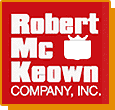When manufacturing a part, whether it’s a consumer product or a medical device, mold cavity filling is often required. This is where liquid silicone rubber (LSR) comes into play. Used in a huge range of industries and applications, LSR can enhance design possibilities for intricate components, small parts, high-precision items, and overmolding. A two-part platinum-cured elastomer, liquid silicone rubber is highly versatile and can withstand harsh weather conditions, extreme temperatures, and general aging.
LSRs are produced during a polymerization reaction of vinyl and methyl siloxane groups, which forms polydimethylsiloxane. During this process, liquid starting components become viscous and are reinforced with fumed silica. Unlike other organic materials, LSR increases tensile strength by using silicates — rather than carbon black or clays — to reinforce the polymer chains. The LSR material is then split into halves, at which point the catalyst and crosslinker are added to each half to greatly increase shelf life.
LSRs can significantly enhance manufacturing efficiency, allowing for automated processing, increased output, reduced waste, and energy savings. These unique materials are used across diverse industries and applications, including automotive seals and gaskets, airbag coating and sealing, electrical insulator coating, electronic device keypads, textile coatings, and LED lighting.
DOW’S LIQUID SILICONE RUBBER
Dow is a global leader in silicon-based technology and innovation, offering injection molding-grade, coating-grade, and specialty-grade LSRs to meet various application needs.
General-purpose LSR applications include consumer goods, infant care, consumer electronics, valves, grommets, gaskets, and seals. Oil-bleeding LSRs are self-lubricating and ideal for automotive connector seals and electrical connections. Oil-resistant LSRs are also available for air- and fluid-sealing applications.
F-LSRs, meanwhile, are created with fluorosilicone rubber, which offers fluid-resistant properties and allows for ease of processing using standard injection molding equipment. Dow also offers LSRs for sleeving applications, self-adhesive LSRs, electrical-grade LSRs, LSRs for airbag coating and sealing, LSRs for general-purpose coating, specialty LSRs, and LSRs for health care applications.
LSRS FOR HEALTH CARE APPLICATIONS
Liquid silicone rubber designed for the health care industry is commonly used in implants, inserts, and non-implants. These LSRs are available in a range of hardnesses and are produced specifically for the fabrication of medical devices and medical device components.
At Pharmapack, Europe’s leading pharmaceutical packaging and drug delivery event, Dow introduced two new LSRs specifically designed for the medical sector. These new materials join their expansive catalog of pressure-sensitive and soft-skin adhesives, medical-grade coatings, and device adhesion materials. At here at Robert McKeown Company, Inc., we’re proud to be serving as trusted distributors for these exciting new offerings.
Dow’s two new LSRs are ideal for medical device components, particularly products designed to address respiratory issues, provide external communication capabilities, or allow for wearable monitoring. Of course, the applications don’t end there; these selective-adhesion LSRs allow silicone to combine with resin substrates like copolyesters, providing durable, primerless adhesion.
Dow’s innovative new LSRs allow for wide process windows and low injection pressures. These models also offer improved rheology, or flowability, and boast fast cure rates at low temperatures.
ROBERT MCKEOWN
Since 1937, the family-owned Robert McKeown Co. has been serving as a trusted fabricating distributor of engineered materials, and is proud to offer products from some of the most respected names in the industry, including Dow.
To learn more about Dow’s liquid silicone rubber products or discuss material options for your specific application, request a quote today.

